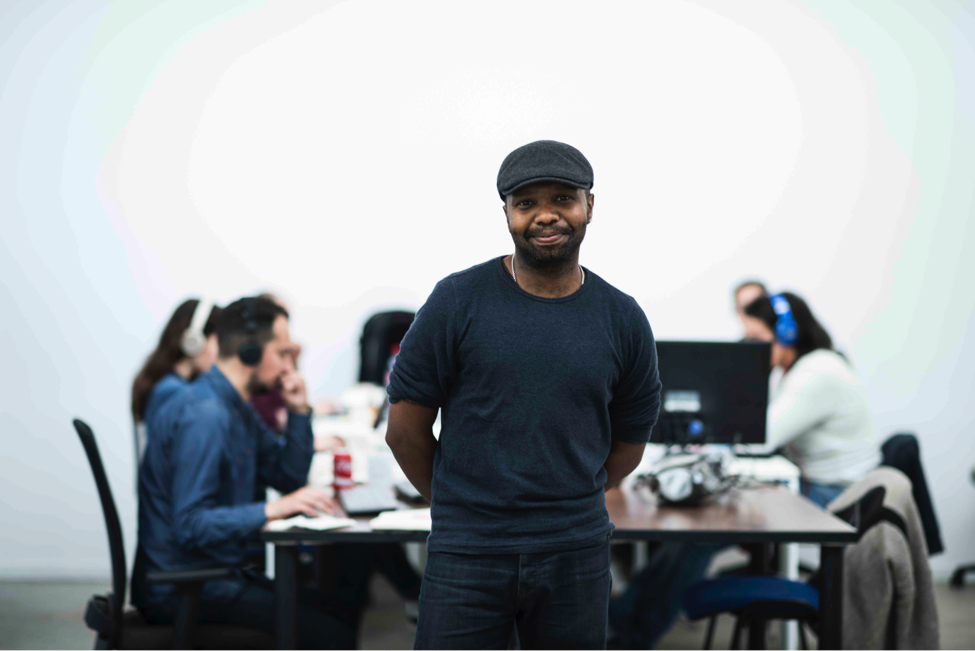At risk of execution in his home country of Sudan, Adam Sakhr arrived in France seeking asylum without knowing the country nor the language. Today, he is developing an SMS-based solution to help asylum seekers overcome the language barrier which can be such an obstacle when trying to fill in essential forms and understand procedures.
By Joanna Kirk, Techfugees France, djokir@yahoo.com
 Photography by Benjamin Loyseau
Photography by Benjamin Loyseau
We met Adam in Paris a few months ago when he attended the first Techfugees France hackathon, co-organised with Singa and Action Emploi Réfugiés.
That weekend, around 150 techies, humanitarians, refugees, NGOs, and social entrepreneurs gathered to listen, talk, learn, and get to know each other. Divided into teams, they worked on eleven projects using tech solutions to help refugees.
What’s the story behind Nowall?
Sakhr, a young Sudanese developer and blogger, fled his country and applied for asylum in France in November 2014.
“I’m facing execution in my country due to my political and religious views which were criticizing the current regime policies and laws,” he explained. “I was lucky to flee the country by land thanks to the help from organizations.”
When he arrived in France, one of the main obstacles he and others around him faced was the language barrier. “Paperwork, administrative visits, and procedures all require a high level of proficiency in French and that’s why most refugees feel lost,” he added.
Sakhr knows that technology can help those who have just arrived into a new country. This is the reason why he supports “any sort of technologies that might help all newcomers and especially refugees.” Following a course at Simplon, a coding school based in Paris, Adam participated in the creation of Nowall, one of the 11 projects developed during the hackathon.
How will Nowall work?
The aim of Nowall is to make it easier for refugees to complete paperwork in unfamiliar languages, by offering translations via mobile phone.
They will be able to send a text message to Nowall and will instantly receive a welcome message asking them to choose the language they want to pursue and the translation they need. There is simultaneous translation for short texts, long distance translation or in person interpretation.
According to the chosen option, users will either get a written response via text message, a phone call, or a face to face meeting with a volunteer interpreter.
Why use text messages?
Because access to a smartphone can be complicated at first, Nowall chose to use text messaging as the main access to their service for refugees.
“Having been in this situation myself,” said Sakhr, “I know how difficult it was to get access to a smartphone or internet at first, and I can assure you that we all wish such a solution existed.”
What’s the future for Nowall?
The project, managed by a team of six, will soon be in testing phase. Next steps involve securing funding and partners to develop the project.
More info from Techfugees France
Follow Techfugees France on Twitter